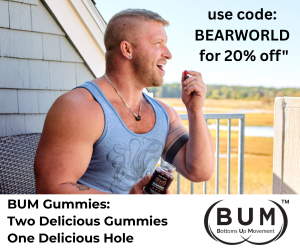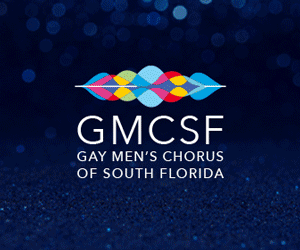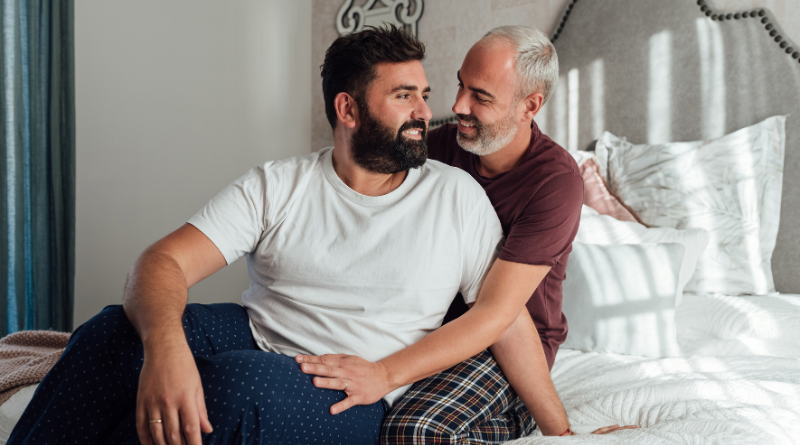
‘The Better Man’ Explores Healthy Masculinity and Consent Amongst Queer Men
One topic that often comes up in bear spaces is that of toxic masculinity. Indeed masculine traits and attributes are a cornerstone of our culture as bears but a lot of our formerly tolerated behavior is now considered by many to be toxic. And while most have adapted to the new societal rules, not everyone is on the same page. This is especially true with respect to concept of consent. Formerly it was somewhat commonplace for men to simply take or relentlessly pursue what they want but times thankfully have changed. Relationship therapist Eric FitzMedrud uses his experience and expertise in sexual issues to teach modern men how to improve their consent skills both in and out of the bedroom with his new book The Better Man. Our sister publication Queer Forty sat down with him for a fascinating discussion about his work which is presented for you below.
If you’re a man who’s confused about consent, you aren’t alone. In the post #MeToo era, men know they need to get consent but don’t know how to ask for it. They may be afraid of doing the wrong thing, or worried about giving up hot sex. In this practical guide to navigating sexual relationships with respect, sex positive psychologist Eric FitzMedrud teaches men the skills to be better lovers, partners, and humans. The Better Man: A Guide to Consent, Stronger Relationships, and Hotter Sex empowers men to embrace their sexuality, manage their emotions, and understand entitlement―and it explains how toxic masculinity harms men and ruins sex for them and their partners. Moreover, this skills-based guide, rooted in evidence-based techniques, shows men how to practice consent, not just on first dates but in all relationship situations and with all types of people, from romantic partners to acquaintances and coworkers.
Using everyday examples, The Better Man provides accurate, sex-positive information―along with confidence-boosting exercises and shame-busting drills―to help men learn how to ask for the passionate sex they want and listen well enough to deliver the pleasure a partner desires. The book is for all sexualities but written through the lens of a masculine subject.
This book shows men how to communicate more effectively, heal trauma, approach consent and safety in a way that can be passionate and sexy, and to understand how some behaviors are toxic. Queer Forty caught up with Dr. FitzMedrud to find out more.
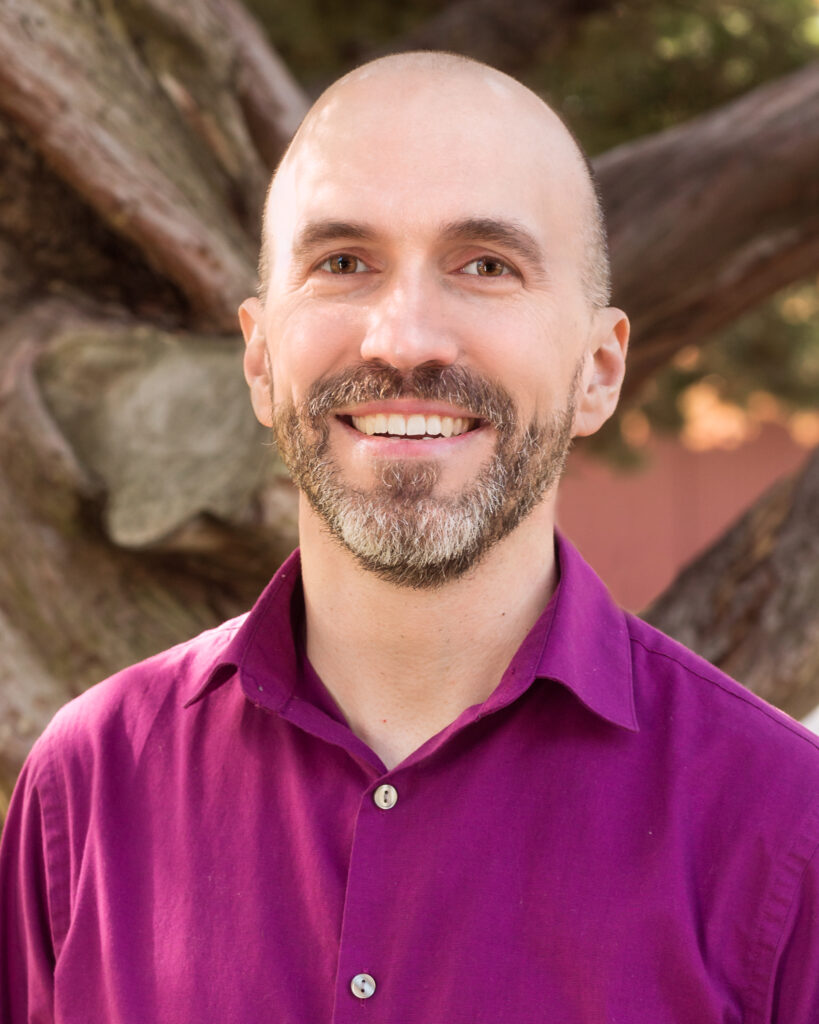
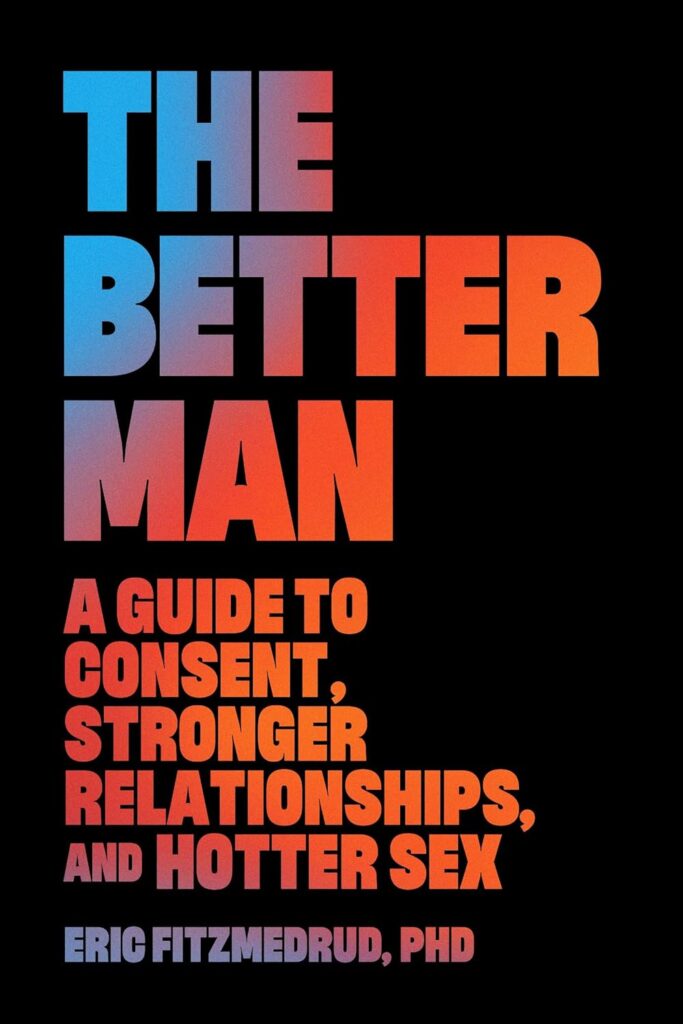
Queer Forty: Gay men are very dexterous with hookup culture. How do you think the question of consent might have shifted for them around casual sex after the MeToo movement?
Eric FitzMedrud: I would agree that gay men are and have been good (better relative to straight men) at using consent to avoid sexual assault or just mismatches in desired behaviors. I also think I’m seeing a shift in gay men around consent. I’m seeing more focus, even in a hook-up, on using consent to make sure they will feel respected as a person during a hookup and to reduce unwanted fetishization. Keep in mind, that this shift in my practice may be due to regional effects (the gay men I work with live mostly in the San Francisco Bay area) or age effects (the gay men I work with are usually in their 30s and 40s)
Queer Forty: The saying ‘regret is not rape’ is blurry and tends to shift blame onto victims who find themselves going through with sex even as inwardly they are not consenting, but may not be outwardly clear about refusing consent — a dynamic present often in ‘bad sex,’ ‘pity sex,’ drunk sex, and rape. How can men — who might be used to being nonverbal and rough during “high desire” encounters — distinguish between consent and non-consent?
Eric FitzMedrud: First, consent is for high-desire partners, tops, doms, and daddies too. If you’re about to dish out some big energy, how will you ensure you are safe while you dish it out? How will you be confident that you’re playing with someone who will take care of you, your feelings, and your reputation? How will you be confident that you’re playing with someone who will give you the feedback required to make sure your behavior meets your intentions? Consent is there to protect you too.
Second, there’s a lot of wisdom in the kink community for situations like this. Build up to bigger energy scene over scene, to develop mutual trust. This includes reviewing each scene and learning together afterward (this is a part of “aftercare” in kink circles). Negotiating an on-going green-light word like, “Yes,” “more,” or “do me,” allows on-going consent confirmation from a sub, passive, or receptive partner. If the sub stops giving the green light, the scene stops, and they check in. If the sub knows they go nonverbal, one option might be giving them two spoons in one hand, which, if dropped clatter against each other, functions like a safe word to end the scene.
Third, you can simply ask, “Hey, I’m really looking forward to fucking you, but I also want to make sure this stays safe and fun. How will I know you’re still into it? How would I know if you suddenly weren’t into it?” Look for answers like eye contact, muscle tone, grunts, groans, shifts from verbal participation to silence, or even “Don’t worry, I will tell you clearly.” These are observable, and you can monitor them. A person who says “that won’t happen” or “don’t worry about it” has not anticipated a need to participate in clear ongoing consent communication. I recommend proceeding cautiously, if at all, in that case.
Queer Forty: Men who have sex with men seem to have clearer consent codes than men who have sex with women. Do you find this to be true or is this a gross generalization?
Eric FitzMedrud: I think this is true with some caveats. I think that the availability of gay sex has created common consent scripts (e.g., hanky code, eye contact processes, and keywords on apps) for moving quickly from interest, through vetting, to sex. My caveat is that while this is true about the basics of who will do what to whom, I still see a lot of hesitation among gay men to protect themselves and their hearts with a robust consent process. They fear being too “difficult” and losing sexual opportunities. For example, some men I’ve worked with aren’t comfortable with barebacking but decide not to ask hook-ups to wear a condom for fear of losing their chance to be with someone. In other cases, I’ve seen gay men hesitate to engage in relationships or emotional consent and get hurt later on.
Queer Forty: Are bisexual men who have sex with gay men more understanding of the issue of consent due to their experience with women? What can bi guys teach gay guys?
Eric FitzMedrud: I think this depends a lot on the bisexual man and his relative experience with each gender. For bi men with adequate experience with both genders, remember that there’s more variation within a gender than between. Bisexual men are a little more likely to have experienced this in a lived way and to approach each person from either gender with fewer preconceived notions. In contrast to this, I see some gay men, especially older gay men, who come in with more assumptions of similarity with their male partners. They need to be introduced to the idea that their partner’s emotions and desire may work very differently than their own.
Queer Forty: With hookup culture in gay scenes, do you see consent becoming an issue based on age difference and power difference as it did for male-women encounters in the MeToo movement? Do you see consent becoming more talked about as an issue among gay men?
Eric FitzMedrud: I don’t think this is coming up just in the twink and daddy scene. I think the cultural shift in consent awareness is helping younger gay men in particular be much more sensitive to the power dynamics in their relationships. They are more likely to talk about those power dynamics to try to mitigate the negative effects of power in their relationships. This is true with age-different twinks, bois, and daddies, but also when there are racialized power differences like a white and a Black man. This brings me back to what I said earlier about gay men increasingly using consent to reduce fetishization and increase humanization even in a hook-up.
Queer Forty: What do you see as the emerging issues around consent for gay men who want to have sex with nonbinary partners and trans folks? This is a growing subset of LGBTQ sex and yet we have no rule book for these encounters that I know of. Any ideas or thoughts around this?
Eric FitzMedrud: I’m seeing a lot of men, gay, bi, and straight, discovering attraction to people outside the gender binary and learning that what they thought they knew about their sexual orientation isn’t as well-defined as they thought. The gift that the trans community brings to the cis community is the lesson that we can’t sort people by identity and make a set of assumptions based on that. To be skillful lovers, we have to spend at least a little time and effort to learn about each partner, their body, their erotic language, and how they like to be touched.
About the therapist
Eric FitzMedrud is a therapist specializing in relationship and sexual issues in the San Francisco Bay Area. His specialty is helping men improve their sex lives by learning to regulate their emotions, removing sexual entitlement, and honing their sexual consent and negotiation skills. FitzMedrud is a member of the American Association of Sexuality Educators, Counselors, and Therapists. He has been published in an academic book and academic journal and has spoken at multiple conferences. He has also trained therapists and taught many graduate courses in psychology. FitzMedrud has a PhD in Clinical Psychology from the Institute of Transpersonal Psychology. He is polyamorous and bisexual, and lives with his wife of twenty-three years and his life partner of six years in San Francisco’s East Bay area, California.
Website: https://www.drericfitz.com/ | Instagram: @drericfitz | TikTok: @drericfitz




